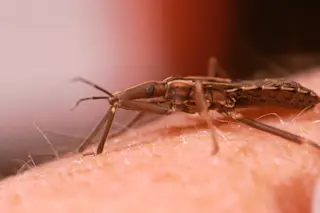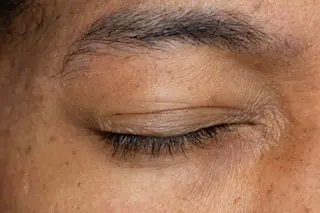Any college student can tell you that overstudying is a waste of energy. When your resources are limited, you should learn the material that’s going to be on the test and ignore everything else. Certain blood-sucking bugs use the same strategy—unfortunately for the humans who catch diseases from them.
Kissing bugs live all around the Americas and drink the blood of other animals, including humans. They prefer to bite their hosts on the face—hence “kissing.” The species that live in the warmest areas, including Latin America and the southern United States, can carry the parasite that causes Chagas disease. This parasite can stay with a human for life and cause heart failure or other serious complications. (It doesn’t wriggle into your body while the bug is sucking your blood, but afterward, when the bug poops on your face.)
Understanding how kissing bugs operate, then, could be important for disease control. ...














